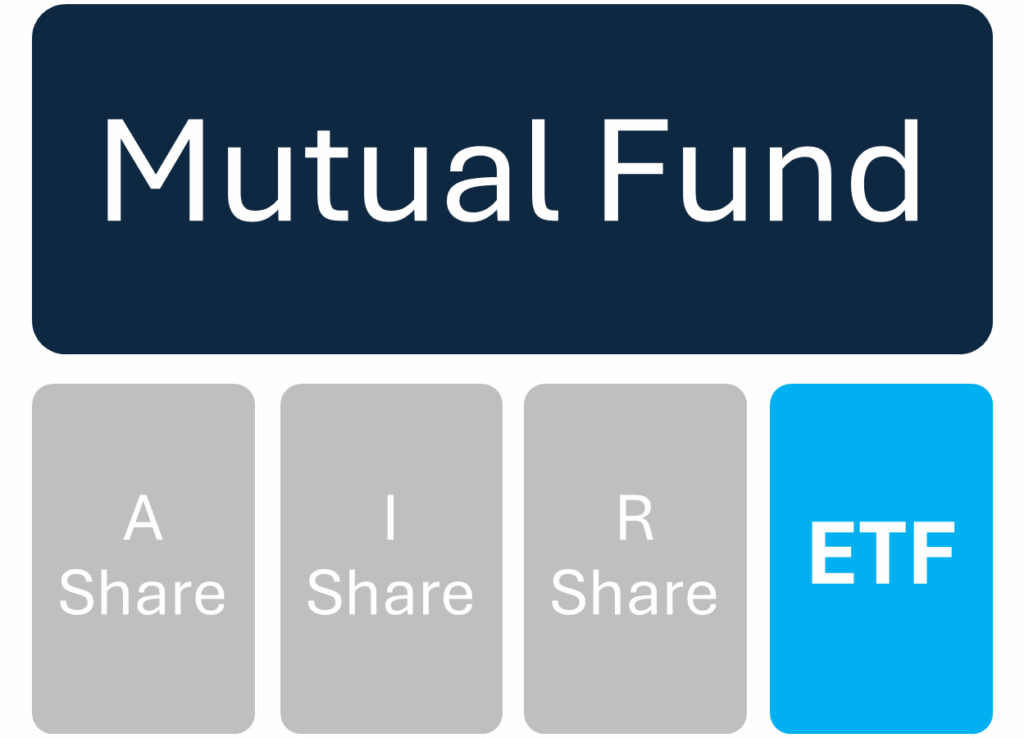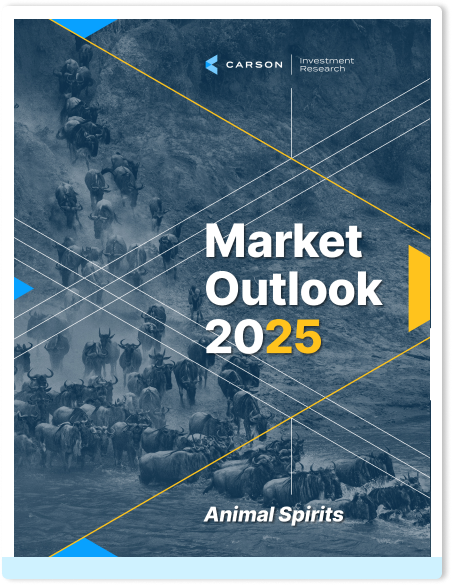Earlier this week, the SEC provided guidance that Dimensional Fund Advisors (DFA) would be granted ‘relief’ to offer an ETF share class of their mutual funds. This tool has existed for decades but was exclusive to Vanguard until its patent expired in 2023. Since then, more than 70 firms have applied for the use of this same structure, patiently awaiting SEC approval. Dimensional has been at the forefront of applying (and reapplying) with the SEC for this exemption, and other firms that follow their lead will likely be granted the same exemption. This could have wide-ranging implications for the industry, perhaps minimizing—or even removing—the question of “mutual fund or ETF”.
The concept is straightforward: an ETF can function as another share class of an existing mutual fund. All share classes draw from the same pool of managed assets, but each comes with different fees and use cases. Each share class trades under a different ticker, though the underlying holdings are identical because they all roll up to the same fund. Inflows and outflows in the traditional mutual fund structure are managed in cash: portfolio managers invest new cash or sell securities (or use existing cash) to fund redemptions, which can trigger capital gains that must be passed along to shareholders.
Adding an ETF share class changes this dynamic. Portfolio managers would be able to accept in-kind creations (securities rather than cash) in addition to traditional cash inflows, reducing cash drag and timing gaps. More importantly, they can meet some outflows via in-kind redemptions—typically of low-basis positions—that do not trigger capital gains within the fund and therefore are not passed on to investors. This addresses a challenge that has plagued mutual funds for decades.
While traditional mutual funds technically can process in-kind creations and redemptions today (I have argued with a lot of people about this over the years), coordinating them across thousands of shareholders, custodians, and intermediaries is an enormous logistical challenge and rarely practical. By contrast, the ETF share class provides intraday trading and seamless connectivity to dealers and authorized participants that specialize in facilitating in-kind transactions.
There are still many open questions as this concept develops, including:
- Custodians – How will they adapt? Historically, the only way to convert from a mutual fund to an ETF was through a Vanguard brokerage account. While conversion isn’t required to access the ETF’s tax benefits within a mutual fund structure, it may still be important for some investors. Custodians also earn significant revenues from higher-fee mutual fund share classes.
- Asset Managers – How will they respond? The potential for significantly reduced capital gains in long-running mutual funds should be attractive, but the model could also compress revenues depending on share class/ETF pricing. In addition, managers wary of daily holdings transparency may hesitate to adopt the structure if that is a requirement.
- Industry Infrastructure – How will it evolve? Behind every pooled vehicle are complex operational mechanics. Distributing low-basis holdings without incurring capital gains requires coordination, relationships, and cost. Those costs can vary depending on fund size, holdings, and strategy. A flood of new ETFs could also affect liquidity in certain areas.
All in all, we view this as a positive development. It benefits end investors and expands allocators’ access to active managers within the more efficient ETF wrapper. With ETF flows—especially into active ETFs—already shattering records, this could add significant fuel to the fire. There is still a lot more work to be done to make the ETF-as-a-share class widespread, but it is a welcome development that we will monitor closely.

Stay on Top of Market Trends
The Carson Investment Research newsletter offers up-to-date market news, analysis and insights. Subscribe today!
"*" indicates required fields
For more content by Grant Engelbart, VP, Investment Strategist click here
8456081.1.-02OCT2025A



